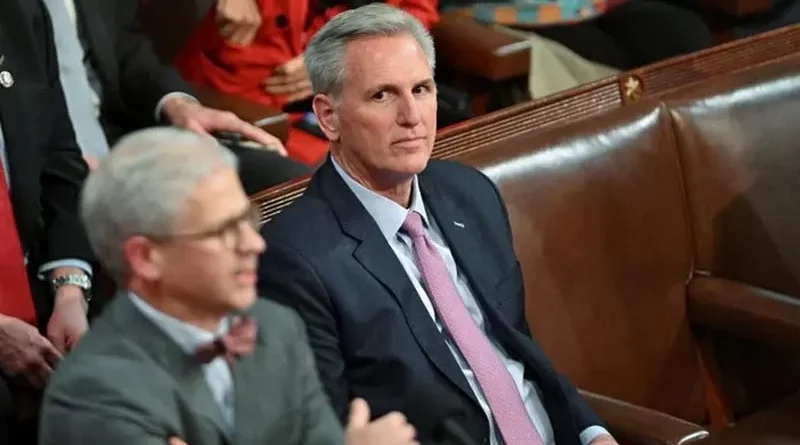McCarthy’s dream job could become a nightmare
WASHINGTON: Kevin McCarthy woke up on Saturday morning with a long-held dream fulfilled: After a four-day standoff, he was elected speaker of the US House of Representatives, becoming the most powerful member of the Republican Party.
But that role could turn into a nightmare because it requires leading a caucus that strongly rejects leadership. Conservatives have regularly excoriated top Senate Republican Mitch McConnell for agreeing to compromises of any kind with Democrats and earlier this week rejected former President Donald Trump’s call to quickly fall in line behind McCarthy.
The 57-year-old Californian showed tenacity in pushing through 15 rounds of voting and dismantling what had been a cadre of 20 right-wing hardline opponents, finding compromises that would pull most of them into his camp. He told reporters on Friday night that he would be a more effective leader because of the drawn-out process.
“Because it took this long, now we’ve learned how to govern. So now we’ll be able to get the job done,” McCarthy said. “At the end of the day, we’re going to be more effective, more efficient and definitely government is going to be more accountable.”
McCarthy agreed to major concessions to secure a role that is second in line to the Oval Office behind Democratic Vice President Kamala Harris, including a rule that means that any of the 435 members of the House could force a vote for his removal at any time.
Republicans’ weaker-than-expected performance in the November elections left them with a narrow 222-212 majority and gives outsized power to a small group of right-wing hardliners. They railed against McCarthy, who served as minority leader since 2019, accusing him of being soft and too open to compromise with President Joe Biden and his Democrats, who also control the US Senate.
“We do not trust Mr. McCarthy with power, because we know who he will use it for. And we are concerned that it will not be for the American people,” said Representative Matt Gaetz, who dealt McCarthy one final humiliation on Friday night when he cost him the second-to-last vote by withholding his support.
But compromise will be necessary in a divided government, and McCarthy’s concessions raise the risk that the two parties could fail to reach a deal when the federal government comes up against its $31.4 trillion debt limit later this year. Failure to reach agreement, or even a long standoff, could bring a default that would shake the global economy.
McCarthy shrugged off suggestions that the deal could weaken his power.
“That gives me no problem or concern whatsoever,” McCarthy told reporters, describing his deal with critics as a “very good” agreement that “empowers the members.”

